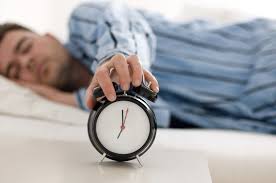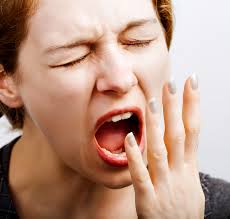New research suggest that night-owls may have trouble reducing negative thoughts, a trait that may lead to downstream mental health issues. Read the News
Early Bed Time Helps To Reduce Negative Thoughts
Study Finds Rise in Bodily Symptoms of Depression
New research shows Americans now report more psychosomatic symptoms of depression, such as trouble sleeping and trouble concentrating, than their counterparts in the 1080s. Read the News
Seeing Depression in the Wrong Light
One important and overlooked factor that contributes to depression: modern lighting conditions. Read the News
How to Get a Good Night’s Sleep – Even When You’re Depressed
People suffering from depression and bipolar are usually significantly affected by disrupted depression. Find out why and what you can do about it. Read the Blog
Study Finds that Sleep Helps Cure Depression
As Fox News reports, getting enough sleep has a powerful impact on easing depression. Watch the News
Depressed, Then Sleepless? Or Vice-Versa?
The official code for psychiatric diagnosis indicates that insomnia is a symptom of depression. This implies that depression causes a disruption of the normal sleep process. However, sensitive clinicians have long noted that sleep changes often precede mood shifts, both toward depression, and, in the case of bipolar disorder, toward hypomania or mania. Surely we are looking here at a bidirectional process in which the two problems are linked, perhaps by way of an underlying cause.
The hot news this week is that a combination of talk therapy for insomnia and antidepressant drugs can relieve depression better than either one alone.
Specifically, the therapy concentrates on encouraging patients to regularize wake-up times, resist daytime napping, and avoid nighttime TV/computer time.
The researchers had their depressed patients keep records of when they got in bed to try to sleep, when they actually fell asleep, how often they became alert in the middle of the night, and when they finally woke up.
But what is actually happening before patients start following the new rules, and what changes as a result?
1. Light exposure in the late evening, at the start of our desired sleep period, tells the brain’s inner clock to shift later, thereby delaying sleep onset – in other words, “causing insomnia.” Without artificial lighting that extends the day – laptop screens are major villains – our circadian rhythm issues its sleep-onset signal earlier in the evening.
2. When we fall asleep later, we create a pressure to sleep later the next morning. Bedroom curtains that shut out the early morning light encourage sleeping in, but we need that light to keep our inner clock in sync with the outside world. During the workweek, the alarm clock helps us fight this pressure, but we pay for it with daytime fatigue – and yes, even depression if we’re in that vulnerable group. We might succumb to napping, especially early evening napping when we get home from work. We try to make up for it on weekends by sleeping in, going against the therapy principle of regular sleep schedules. This has the effect of further denying us early morning light exposure, and allowing our inner clock to shift more out of sync.
3. Napping in the latter part of the day – which happens because we don’t get enough nighttime sleep – uses up a protein in the brain that is responsible for the restorative feel of a good night’s sleep. Two results: it’s harder to fall asleep, and what sleep we get is less restorative than we need, further fueling daytime fatigue and blue mood. Cutting out these late-in-the-day naps has an obvious benefit.
INDIRECT VS. DIRECT THERAPY
The new research shows that you are less likely to lie in bed for hours wishing for sleep, and then suffer disturbed, unrefreshing sleep if you take these behavioral measures. They work by indirectly adjusting the brain’s circadian rhythm toward its normal state. However, taking direct measures to shift the inner clock into sync with optimum sleep time might considerably strengthen the therapeutic impact. We’re talking about light therapy (in the morning) and light reduction (in the evening). These are simple home treatments that can reduce reliance on both antidepressant meds and sleeping pills.
How do we standardize morning wake-up time? Two methods: bedroom dawn simulation and post-awakening bright light therapy. Our recent paperback explains how to set this up. Better to use nature’s morning alerting signals than yield to the aversive alarm clock, which can interrupt your sleep just as you’ve fallen into your final dream period of the night.
A simple way to standardize sleep onset is to reduce specific kinds of light that have an activating effect just as you’re hoping to calm down. You don’t have to turn off all the lights or dim them to uncomfortable levels to allow the circadian sleep signal to do its work. Rather, you should adjust your lamps – and TV and computer screens – to cut down on the shortest wavelengths of white light (the violet, indigo and blue) that tell the inner clock to shift later, thereby delaying the sleep onset signal. In technical terms, we want to shop for bulbs rated at 2700 or 3000 Kelvin, rather than the higher levels that supposedly mimic daylight.
In combination, these morning and evening light regimens are energizing and antidepressant, so you feel less urge to nap. In case of an occasional afternoon slump, even a brief supplementary light therapy session – at work or at home – can quell the urge.
I am not disparaging the very hopeful news that the combination of antidepressant meds and talk therapy can speed relief from depression. However, I am suggesting that direct control of the inner clock accesses the underlying mechanism, is therapeutic in its own right, and can reduce reliance on drugs.
Michael Terman received his doctoral degree in physiological psychology from Brown University. After years of basic science studies in circadian rhythms and light, he moved to Columbia, where he established a novel outpatient clinic, the Center for Light Treatment and Biological Rhythms. In 1994 he founded the nonprofit Center for Environmental Therapeutics, which offers chronotherapy guidance to consumers, patients, and doctors. In 2013, he created the Clinical Chronotherapy Group, which offers patients coordinated chronotherapy, pharmacotherapy, and psychotherapy, according to individual needs. Michael is the coauthor of the 2013 Penguin paperback, Reset Your Inner Clock.
Sleep, The Other Medicine for my Depression
Since blogger Christine Stapleton’s diagnosis of depression and last major depressive episode 8 years ago, sleep has become a barometer for her quality of life. Read the Blog
Built by Staple Creative










